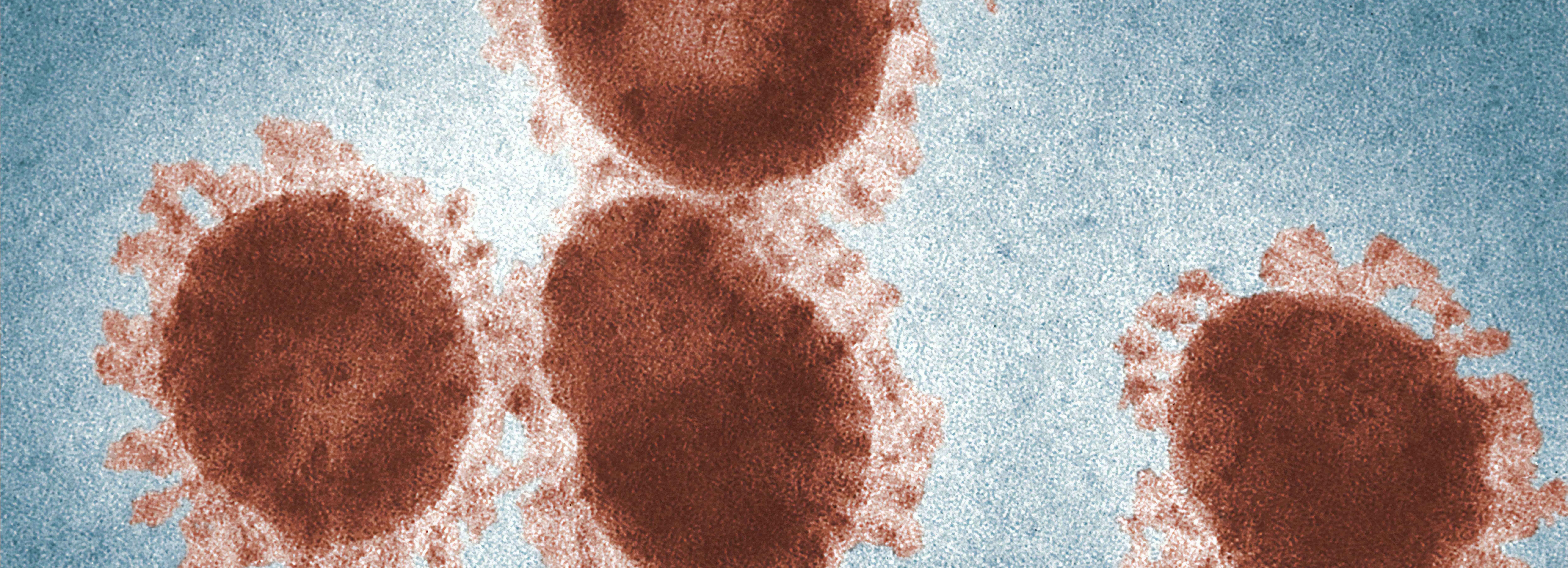The Immune System
At the Center of Our Health


Contributed by
Dr. Natalie
Kazzi Buxton
DrPH, MS, RD
Most people don’t think twice about their immune system, until it stops working. As long as you don’t get sick, this system is relatively unnoticed and maybe even not cared for. The role of our immune system is to basically prevent or limit infection. We get exposed to infectious bacteria and viruses on a daily basis, but we may only get sick once in a while, if ever, thanks to our immune system. It protects, prevents, and helps us fight off sickness. But when our immune system can’t do its job properly, we can very well get sick. And that’s often when we try to help it out. Many of us including myself have done it— taking vitamin C and vitamin D capsules when we start to feel a sniffle or increasing our intake of herbal teas when we feel a tingle in our throat. Sometimes such remedies help, and then there are those unfortunate times when we do get ill and the body takes time to heal. Understanding how to maintain and assist our immune system first starts with understanding some biology.
Ways Our Immune System Works
Our immune system is composed of immune cells that work together with body organs and systems. Skin is often the first barrier against microbes that can hurt us, so it is essential to keep our skin clean and to wear appropriate coverings. Hand washing has been recently emphasized in light of COVID-19, an infection is caused by a virus. If such viruses or bacteria enter through our mouths, some can be “killed” by our stomach acid. But other microbes can infect us before reaching our stomach or if they enter through a different route, in which case the next line of defense is ultimately the white blood cells. These cells can engulf bacteria and other virus-infected cells that have antibodies attached to them. Antibodies are proteins that our immune system makes to specifically detect and identify foreign substances, attach to them, and form a signal for white blood cells to exterminate them.
When this immune system process is not functioning well, infection occurs and may lead to dire outcomes. This process includes a variation of symptoms such as coughing, sneezing, runny nose, diarrhea, fever, etc. Fever, for example, helps assist the body in getting white blood cells to where they need to be in order to eradicate the infectious microbes (1). So, when you get those aches and pains from a fever, know that your body is working hard to fight against illness.
Immune Function and Some Diseases
The immune system not only protects against foreign harmful microbes, it also protects us from unhealthy cells within our bodies. For example, some cells can become damaged by sunburn and cancer. Every day cells in our body ‘malfunction’ and these are often eradicated and replaced by new cells. In some cases, however, our immune system can’t keep up and cancer is a result. Cancer is a tricky disease because it can weaken the immune system in various ways, which is why once out of hand, deterioration can be rapid. Certain treatments of cancer further suppress the immune system, which puts cancer patients even more at risk for infections.
Another function of the immune system is to identify and deactivate harmful materials that come from the environment, like poisonous toxins or other non-infectious foreign materials. Sometimes our body’s immune system may over-react to something that is usually harmless and a severe allergic reaction occurs. There are also autoimmune reactions where one’s immune system starts to attack their own body. There is no known cause for these autoimmune diseases other than they appear to be triggered more often in people with certain genes. Type 1 diabetes is an example of an autoimmune disease where the insulin producing cells in the pancreas are attacked by one’s immune system. In addition, being exposed to an immune response too long can have negative outcomes. Overstimulation of the immune system has been recently suggested to be a contributing factor to heart disease. People with high cholesterol have a buildup of plaque in their arteries and it’s been suggested that the cholesterol in this plaque stimulates the immune system to release inflammatory markers, the increased presence of which eventually may lead to heart attacks and related consequences (2).
Steps Towards an Immune Boost
All of this information is to highlight the importance of the immune system and to set some background for learning how certain substances and practices can affect our first line of defense. In preparing to write this, I searched the internet to see what is being generally promoted as ways to boost your immune system. What I found were general guidelines that just so happen to echo counsel that we have received over one hundred years ago. “Pure air, sunlight, abstemiousness, rest, exercise, proper diet, the use of water, trust in Divine power—these are the true remedies” (3). Numerous scientific studies have been done to research what we can do to “boost” (or support) our health and immune system with a special emphasis on the right medication or supplement or product. Yet the recurrent theme is that our health is based on lifestyle—there’s no magic fix. It is remarkable that living a healthy lifestyle through these very simple “remedies” has such a profound impact in preventing a myriad of different disease conditions.
Many of these steps are straight forward. To get out into fresh air in nature, away from the hustle and bustle of urban areas, getting enough sleep (7-9 hours of night sleep for most healthy adults), getting into the sun every now and then—these are fairly straight forward things to do. As long as you avoid getting sunburned, sunlight has been shown to help certain white blood cells to move more efficiently, which means they can get to harmful microbes quicker (4). Even exercise is straight forward in that you just need to get your heart rate up a few days a week and you’ll experience health benefits (5).
On the other hand, what constitutes a proper diet has been debatable. Is it to be vegetarian? Is it to be vegan? Right now, the keto diet is promoted as ‘healthy’ but is it really good for our immune system? We will be addressing a few examples of how certain aspects of nutrition can affect the immune system in later articles but the key message is that a diet rich in whole foods, mainly fruits and vegetables, is what is important for our overall health. Fruits and vegetables have antioxidants and vitamins, fiber, and other nutrients that help our immune system and our whole-body function. One can be vegan or vegetarian but have a limited intake of fruits and vegetables and therefore not be adhering to healthful eating; the point is to make an effort to eat whole foods. Abstemiousness includes avoiding tobacco and other compounds in an effort to prevent their negative consequences; we will be addressing a couple of these things in later articles. And finally trust in Divine power. How does this specifically affect our immune system, and overall health?
Well, our mind is what connects us to the Divine. Our mind is in our brain. A new area of study has emerged that focuses on the links between our brain and our immune system; it is called psychoneuroimmunology. It looks at interactions between psychological processes and the nervous and immune systems. While evidence of these processes has existed, it was only until recently that the mechanisms started to be defined and understood. The point is that choosing to trust in God and rely on Him, having faith, can actually be good for our immune system and mental health.
“I will praise You, for I am fearfully and wonderfully made; Marvelous are Your works, and that my soul knows very well” Psalms 139:14.
Our body is designed to heal itself. This is evidence of creative power and it is awesome. What we do with our body is our choice, and all choices have consequences. But, if we choose to consider our body as a living temple for the Holy Spirit, we would honor it as sacred and treat it with reverence. Some may argue that genes play the biggest role in our health and that it is futile to work against it.
While that may be partly true, my dad has a funny statement he repeats often. He thinks he does not have the best genes and compares himself to a certain car and you’ll see why shortly. His paternal grandfather, father, and paternal uncle all passed away from heart attacks. My father has had several stents placed in him and had a heart attack 3 years ago despite living a very healthy lifestyle.
[Some background story before I share his statement is that my family moved to Lebanon in the Middle East around 1998 and we lived there for 13 years. Public transportation at the time was primarily by taxi. By far the majority of the taxis were Mercedes built, the reason being that they are extremely tolerant to pot holes and uneven roads, easy to fix and find parts for, and have a really long-lasting life. On the opposite spectrum of car quality as per ‘Lebanese public transportation mindset’ at the time was H___. This was so ingrained in Lebanon that there are jokes and clichés about it.]
So, going back to my dad’s saying, I’m paraphrasing here: Our body is like a car. You either get a Mercedes or you get a H___. You can total a Mercedes by bad decisions and you can also make a H___ last a long time if you take care of it.
Let’s take good care of our body, starting with our immune system.

References
- Lin, C., Zhang, Y., Zhang, K., Zheng, Y., Lu, L., Chang, H., … & Yuan, M. (2019). Fever promotes T lymphocyte trafficking via a thermal sensory pathway involving heat shock protein 90 and α4 integrins. Immunity, 50(1), 137-151.
- Rajamäki, K., Lappalainen, J., Öörni, K., Välimäki, E., Matikainen, S., Kovanen, P. T., & Eklund, K. K. (2010). Cholesterol crystals activate the NLRP3 inflammasome in human macrophages: a novel link between cholesterol metabolism and inflammation. PloS one, 5(7), e11765.
- Ellen G. White, Ministry of Healing, p. 127
- Phan, T. X., Jaruga, B., Pingle, S. C., Bandyopadhyay, B. C., & Ahern, G. P. (2016). Intrinsic photosensitivity enhances motility of T lymphocytes. Scientific reports, 6, 39479.
- https://www.mayoclinic.org/healthy-lifestyle/fitness/expert-answers/exercise/faq-20057916


Leave A Comment